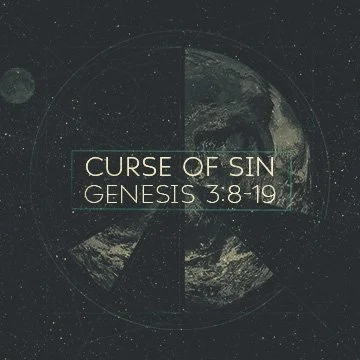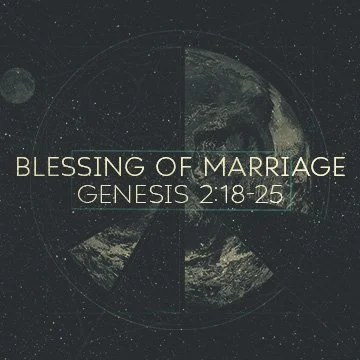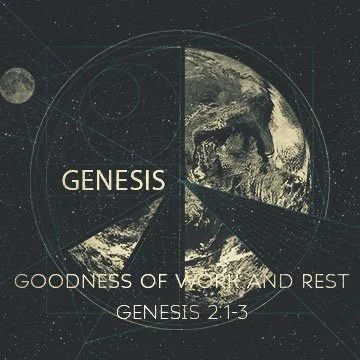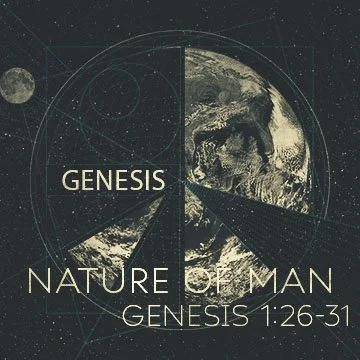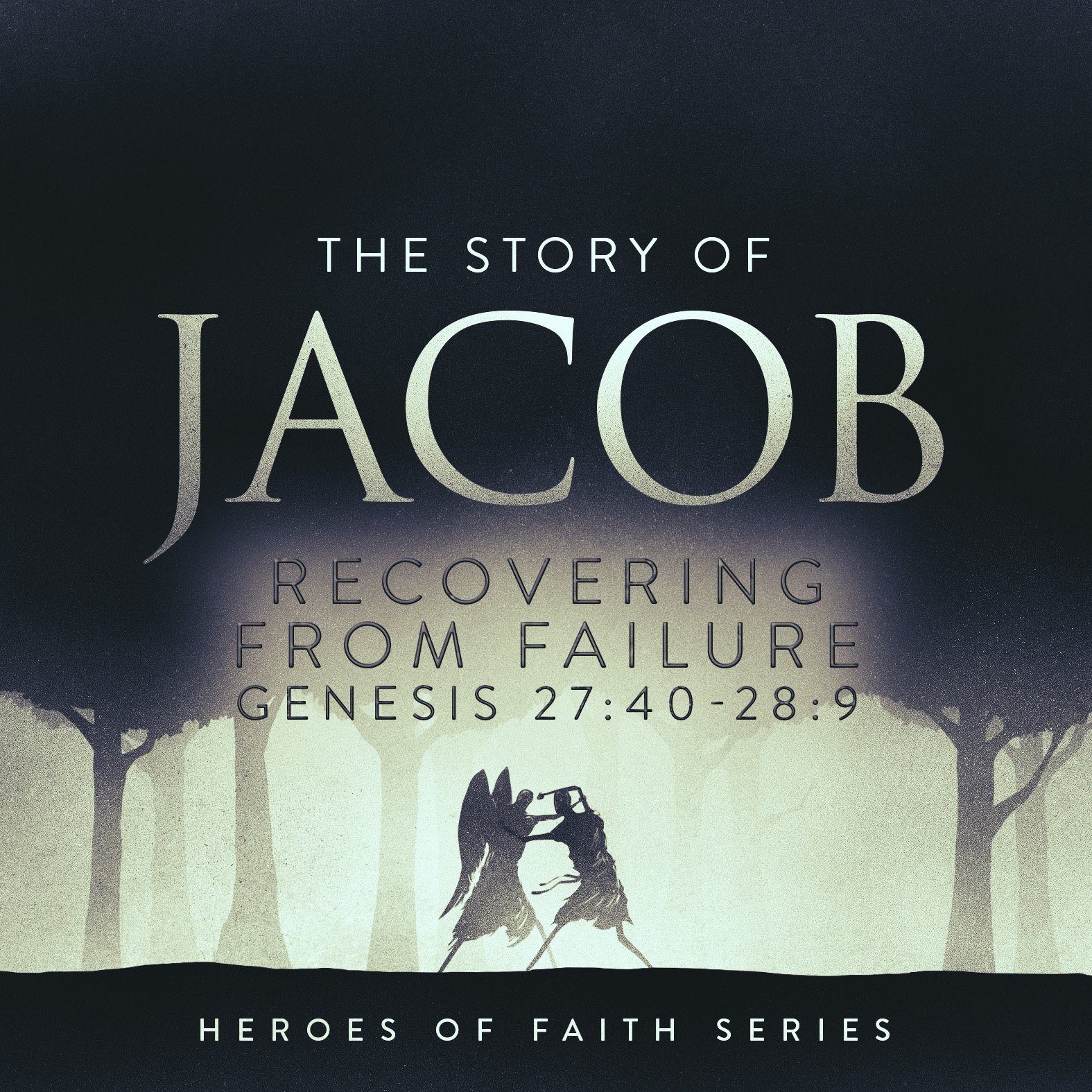All for the Kingdom
Sermon Podcast
2025 - The year-end Review
“Expository preaching isn’t about imposing our ideas onto Scripture—it’s about letting Scripture speak for itself. When the main idea of the text becomes the main idea of the sermon, God’s Word shapes both the preacher and the people. In this year-end conversation, we reflect on how faithful, verse-by-verse preaching has formed our understanding of the gospel, challenged us through difficult passages, and deepened our appreciation for God’s redemptive plan revealed from Genesis to Revelation.”
Give Thanks, Psalm 106
In this message from Psalm 106, learn how confession, reflection on God’s faithfulness, and a God-centered perspective shape genuine, lasting thanksgiving.
Purposeless Prosperity, Genesis 4:17-24
Cain’s descendants built cities, developed culture, advanced technology, and prospered in ways the world would applaud—yet they lived every moment outside the presence of God. Their story reminds us that success without God is not success at all. Prosperity apart from Him may look impressive, but it cannot satisfy, it cannot save, and it cannot endure. In this episode, we explore how the busyness of building for nothing and the foolish confidence of worldly achievement can silently pull our hearts away from what matters most—and why true purpose is found only in a relationship with Christ.
Sin’s Ruinous Rule, Genesis 4:8-16
In “Sin’s Ruinous Rule” (Genesis 4:8–16), Pastor Ben Smith examines Cain’s tragic story to reveal three warning signs of sin’s growing destruction—its mastery, its blindness, and its judgment—while calling believers to repentance and the redeeming grace found only in Jesus Christ.
Right with God, Genesis 4:1-7
In Right with God (Genesis 4:1–7), Pastor Ben Smith contrasts the offerings of Cain and Abel to reveal that true acceptance with God comes only through obedience, faith, and submission to His will. This sermon challenges today’s culture of self-worship and calls believers to honor God through a worthy offering and wholehearted surrender to Christ.
Death for Life, Genesis 3:20-24
In Death for Life, Pastor Ben Smith, Sr. explores Genesis 3:20–24, showing how God’s first act of redemption in Eden points to Christ’s death and substitutionary sacrifice. Discover how faith, a righteous sacrifice, and God’s grace bring true life.
Created Male and Female, Genesis 1:27-31, 2:18-25
On the issue of gender, the Bible is very clear that gender is by divine design, God declared, and must be celebrated as part of the goodness of creation.
Curse of Sin, Genesis 3:8-19
Genesis 3:8–19 reveals the far-reaching consequences of sin. Pastor Ben Smith explains how sin breaks fellowship, disrupts cooperation, and distorts purpose, bringing guilt, pain, and death. Yet even in this dark moment, God gives a promise of hope through Christ, who conquers sin and restores what was lost.
Fall of Man, Genesis 2:25-3:7
Genesis 3 is a pivotal moment in Scripture when Adam and Eve chose to believe the lies of Satan rather than trust the will of God. Satan's work has always been to draw us away from God—through doubt, half-truths, and deception. Adam and Eve's choice in the garden was not just their story; it's ours too. As Romans 3:23 reminds us, "all have sinned and fall short of the glory of God."
To understand our own sin, we must first understand the first sin. What does their rebellion teach us about the danger of Satan's lies? At the heart of every temptation is an invitation to reject God and trust the deceiver instead of the Creator. This text teaches three vital lessons: the need to trust God's wisdom, trust His word, and trust His design.
Blessing of Marriage, Genesis 2:18-25
Today, marriage is under attack. It is under attack by those who hate God. It is under attack by those who are living in rebellious sin. And it has even suffered friendly fire from those in the church who do not fully grasp the significance and biblical foundation of marriage.
Genesis 2:18-25 is the most fundamental scripture for understanding the Bible’s view of marriage. The Bible will say much more about what marriage is and how Christians are to function as husbands and wives; however, all these other scriptures rest on the foundation of Genesis 2:18-25.
Because marriage is so familiar, you may be tempted to think that having a biblical view of marriage is automatic and assumed, but the truth is that for many today, their view of marriage is more informed by Hollywood, secular pragmatism, and politics.
How then are you to understand marriage from a biblical worldview? This testimony of God’s creation of Eve and ordaining marriage teaches three elements of a biblical worldview of marriage: that it is a good union (18-23), an exclusive union (24a), and a holy union (24b-25).
Breath of Life, Genesis 2:4-17
God made man, unique among creation, to glorify Him, dwell with Him, and enjoy Him forever.
After describing the six days of creation followed by a day of rest, verse 4 of chapter two returns to the sixth day to provide greater details and insights into the purpose and nature of man’s creation. Though at first read it may seem that what is described here is simple, you will discover, with careful study, that these verses flow from deep theological waters.
All of creation is designed to glorify God; however, unique among the creation, man is made to be in a relationship with God. This uniqueness sets man apart from every other part of creation in purpose and responsibility.
This passage’s testimony of God’s creation and provision for man reveals that man was created for God’s glory (4-7), to dwell with God (8-14), and to love God (15-17).
Goodness of Work and Rest, Genesis 2:1-3
Work and rest are both good and part of God’s created order. Rest is inseparably related to work, as is work to rest, and must be understood and enjoyed according to God’s design.
Work is often perceived negatively as a requirement, and not something good, desirable, or pleasant. This, of course, is the consequence of sin that caused work to become a burden and rest to be a snare. Likewise, though rest seems more desirable than work, it too is corrupted by sin. In sin, rest is often disconnected from work and purpose, and it becomes a sinfully lazy habit.
God resting after his labor on the seventh day and declaring it holy is a testimony both to the purpose and goodness of labor and the purpose and goodness of rest. Genesis 2:1-3 calls the church to honor God with both your work as unto the Lord and rest as a response of obedience.
The Nature of Man, Genesis 1:26-31
Man’s nature and purpose are not according to the autonomous will of man but determined, ordained, and commanded by the sovereignty of God. A biblical worldview affirms the sovereignty of God over all of creation, including man, but the world claims that each person has total autonomy, independent of any authority.
Genesis 1:26-31 testifies to the creation of man and man’s nature and purpose.
In the sermon from Genesis 1:26-31, Pastor Ben explains that God’s creation of man demands that you honor every human life as God’s image bearer, be a good steward of God’s creation, and submit to God’s authority to create and command.
God Created, Genesis 1
Genesis chapter one is the testimony of creation. By God's authority, out of His will, and according to His command, He created all things.
As with all of scripture, Genesis chapter one is a testimony of God that reveals His authority, will, and nature. It is not a story about men but a testimony to who God is and how He is working.
Genesis chapter one does not answer every detail you may wish were included. There are many questions about how God accomplished His work that are left unanswered. Not the least of which is how God created all that is from nothing. In His perfect providence, God has given us His word to declare that He is the author and creator of all things while leaving unanswered the mysteries that the mind of man cannot conceive.
Genesis chapter one is a foundational text for a Christian worldview and many of the most fundamental doctrines. From Genesis chapter one, Pastor Ben Smith preaches on how God's creation forms how Christians understand God and all that He has made.
Finishing Well, Genesis 35:1-15
Jacob is now an old man, but God is still working in his life. Old age can be seen as a time to slow down and rest. But, more dangerously, it can also be seen as a time to coast, relying on past efforts and decisions. Yet we see in Jacob that even in old age, he was ready to respond to the Lord's leadership.
Wrestling with God, Genesis 32:22-32
As Jacob faces his fear of his brother Esau and desperately attempts to appease him, he is doing all that he can to save himself. However, in Genesis 32:22-32, Jacob has an experience that will change his name and the rest of his life.
He sends his wives, children, and all he possesses over the stream Jabbok while he stays back to be alone. He thought that he would spend the night alone, but he would spend the night wrestling with God. At the end of the long night of struggle, Jacob would come to know two fundamental truths; he is weak, but God is strong.
But before God prospered Jacob's children to become patriarchs of great tribes or grew these tribes into a great nation, He first humbled a schemer and cheater named Jacob. He humbled Jacob so that he would know that he was weak, but God is strong. There is great grace when God wrestles with us that we, too, come to know that we are weak, but He is strong.
Learning the hard way, Genesis 29:1-30
The arrogance of youth can be destructive and costly. In Genesis 19, we have the account of Jacob learning humility, the cost of sin, and the fruit of his deceitfulness. He was learning valuable truths the hard way and experiencing the grace of God to mature him in righteousness.
Precious Promises, Genesis 28:10-22
No one desires to be broken. No one wants to suffer the consequences of sin. If we had our desires, we would skip through life without consequences. However, there is grace in brokenness.
In Genesis 28:10-22, Jacob is broken. He had succeeded in his schemes against his father and brother, but he had lost everything he had hoped for. We find him not as the favored son receiving his father's wealth and blessing or becoming his family's leader but alone and destitute. He has no home. He has no family. He is uncertain about his future. And he is likely fearful that all is lost.
Is this where you are today? Are you struggling under the weight and brokenness of your sin? Have you heard of the grace of God and the promises He has made but wonder if they apply to you? Jacob's life is far from perfect. However, in this moment, he would hear from the Lord and be encouraged by the precious promises of God. You are not alone, God's provisions are sure, and God is in control.
Recovering from Failure, Genesis 27:41-28:9
Sin is destructive, and failure is demoralizing. If we are not careful, our response to sin and failure can be as destructive, if not more than the original sin. In Genesis 27, we witness how Isaac, Rebecca, Esau, and Jacob responded to their previous sinful attempts to get their way. Each of them is attempting to recover from their own failure. Through their testimony, we see in Esau the destruction of unrepentance, in Rebecca and Jacob the unexpected cost of sin, and in Isaac the testimony of repentance.
True Treasure, Genesis 25:19-34
The testimony of scripture is not of perfect people accomplishing God's purposes. Instead, the story of scripture is of a perfect God using imperfect people to accomplish His perfect will.
The testimony of Jacob is complicated. On the one hand, Jacob's story is not easily celebrated. He is not a man of strength in character or physical ability. He is a schemer, manipulator, and liar. On the other hand, he is very significant because God demonstrates the character of His sovereign grace in choosing him over his brother. With this generation, we learn an essential truth about the promise of God. God's blessing and promise will not go to those whom man's customs, traditions, or desires dictate but to whom God so chooses.









